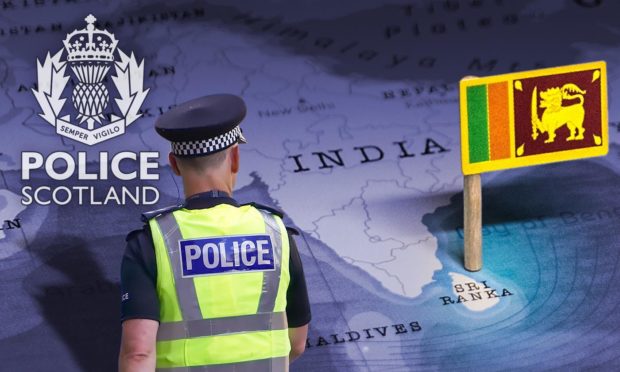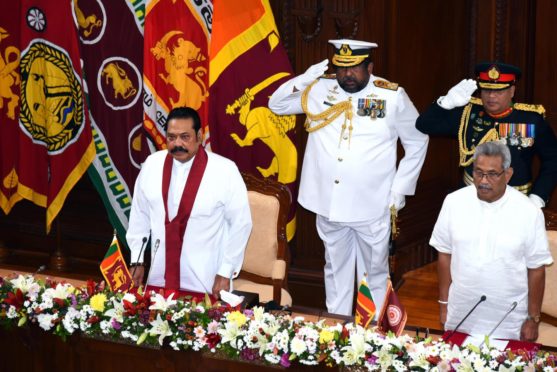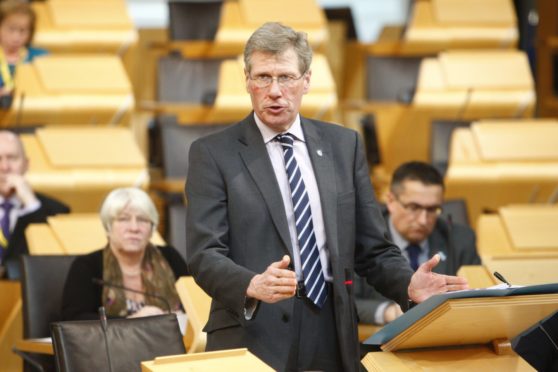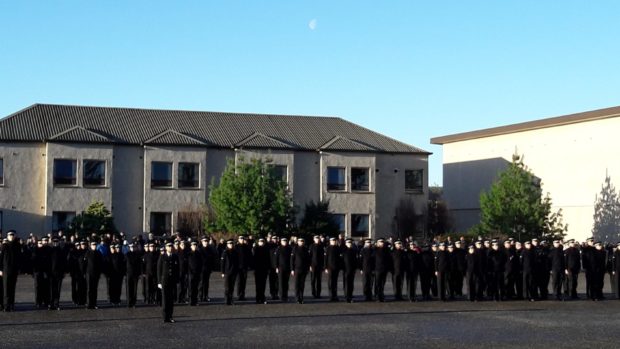Police Scotland is being accused of helping Sri Lankan authorities to cover up serious human rights abuses.
Human Rights Watch says human rights in Sri Lanka have been in “serious jeopardy” since President Gotabaya Rajapaksa came to power in 2019.
They say his administration has blocked accountability for abuses linked to the country’s 26-year civil war (which ended in 2009), as well as facilitating torture and keeping tabs on victims, their families and human rights defenders.
Police Scotland’s international development and innovation unit, based at Tulliallan, has been running training programmes for officers in Sri Lanka on an “almost continuous basis” since 2013.
However due to the coronavirus pandemic they have not run any training programmes in Sri Lanka since February 2020, and officially paused this in May 2021 pending a review.
Former Justice Secretary Kenny MacAskill MP and a number of human rights campaigners have now written to Scottish Justice Secretary Keith Brown urging Police Scotland and the Scottish Government to officially cut ties with Sri Lanka Police over the “grave abuses”.
Clear violation of human rights, says MP
Mr MacAskil says the tie with Police Scotland is allowing Sri Lankan authorities to cover up their human rights breaches.
He said: “I am calling for the Scottish Government to confirm that all involvement in the training of Police Scotland has ceased.
“If that is not the case then the Scottish Government must intervene and direct Police Scotland to cease all involvement in the training of police forces in Sri Lanka until such times as its government adheres to and upholds internationally accepted human rights.
“It is now clear that the political situation in Sri Lanka has changed and deteriorated significantly since Police Scotland first got involved in training Sri Lankan forces following the end of the civil war.
“Under the current government there has been considerable changes to policing and clear violations of human rights, including police brutality.”
Under the current government there has been considerable changes to policing and clear violations of human rights, including police brutality.
The East Lothian MP says a number of non-governmental organisations and the Bar Association of Sri Lanka have both confirmed there has been human rights violations in the country.
He added: “Sri Lankan authorities are using Police Scotland as cover to deny repression and breaches of human rights.
“Therefore it is incumbent on the Scottish Government, Police Scotland and any other governmental agency that none of their activities can in any way be seen as legitimising Sri Lanka’s human rights abuses.”
Police Scotland urged to break ties
This comes after Human Rights Watch, Sri Lanka Campaign for Peace and Justice, Pax Christi Scotland and Freedom From Torture jointly penned a letter to the justice secretary calling for action on Police Scotland’s ties with its counterpart in Sri Lanka.
They say: “Abuses implicating the Sri Lankan police in past months include torture and other ill-treatment and extrajudicial killings.
“Police Scotland and your department contend that this programme is designed to enhance the Sri Lankan police’s respect for human rights, and that it particularly aims to reduce gender-based violence.
Pax Christi Scotland chair Marian Pallister reflects on the issue of Police Scotland’s training of Sri Lankan police officers https://t.co/04MRmN9ykG @PaxScotland
— Sri Lanka Campaign (@SLcampaign) August 23, 2021
“There is no evidence of any improvement in the human rights performance of the Sri Lankan police under the Gotabaya Rajapaksa administration.
“Our experience in Sri Lanka and elsewhere is that so long as there is no political will on the part of the government to end abusive police practices, no amount of “training” is going to bring significant improvements.
“Instead, continued training efforts merely appear to endorse the actions of an abusive police force.”
Training paused pending a review
However neither Police Scotland nor the Scottish Government could confirm ties with Sri Lanka have been officially severed.
Assistant Chief Constable Gary Ritchie said all overseas assistance is subject to “robust” assessments to make sure it is consistent with international human rights obligations, and says their current activity in Sri Lanka is currently paused.
He added: “Police Scotland’s values of integrity, fairness, respect and a commitment to upholding human rights are at the heart of everything we do.
“This includes our work in Sri Lanka, which supports the realisation of the United Nations’ sustainable development goals, particularly gender equality, reduced inequality, peace and justice, strong institutions and partnerships to achieve the goals.”
A spokesman for the Scottish Government added: “Training programmes provided by Police Scotland in Sri Lanka are aimed at improving community policing and gender equality, with all training underpinned by equality and human rights.
“It is a matter for the chief constable of Police Scotland to agree the details of any training programme in Sri Lanka, which is funded by the UK Government, through the Foreign, Commonwealth and Development Office.”
The Foreign, Commonwealth and Development Office was approached for a comment.



